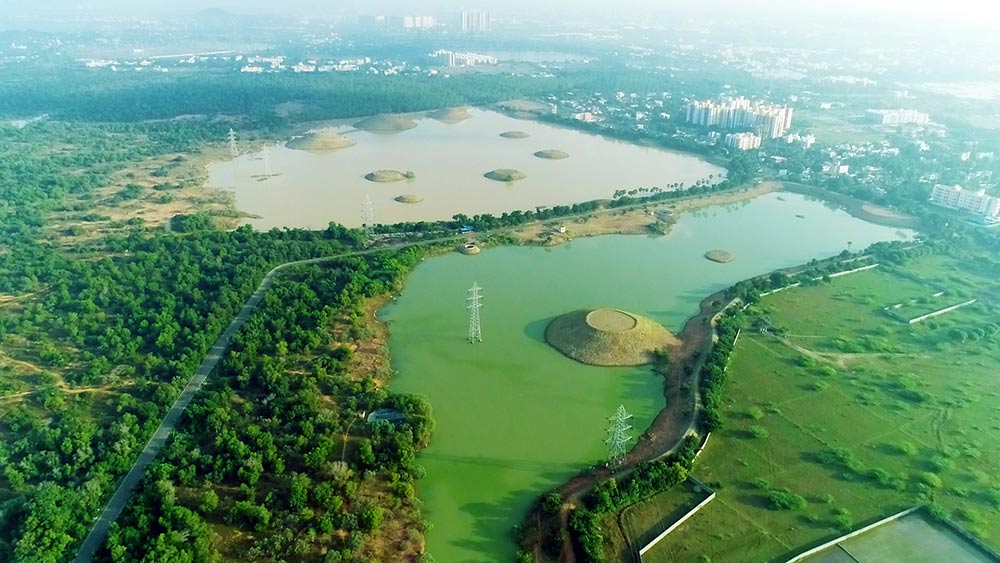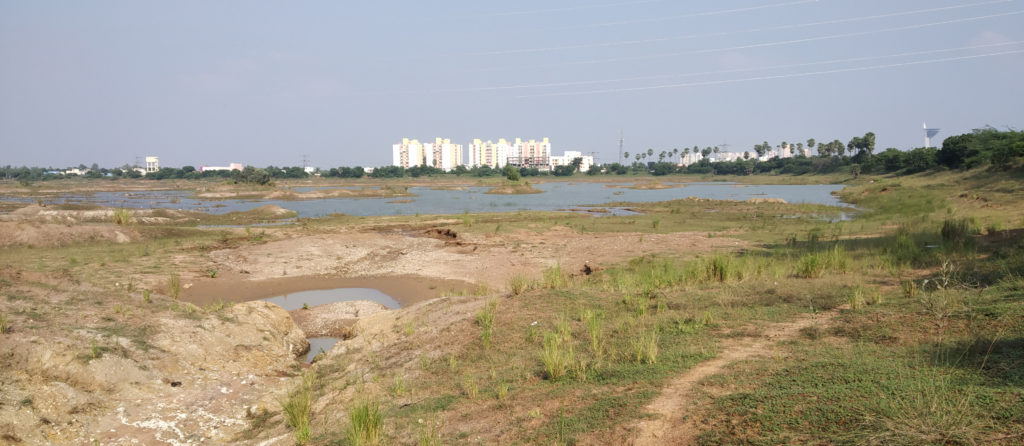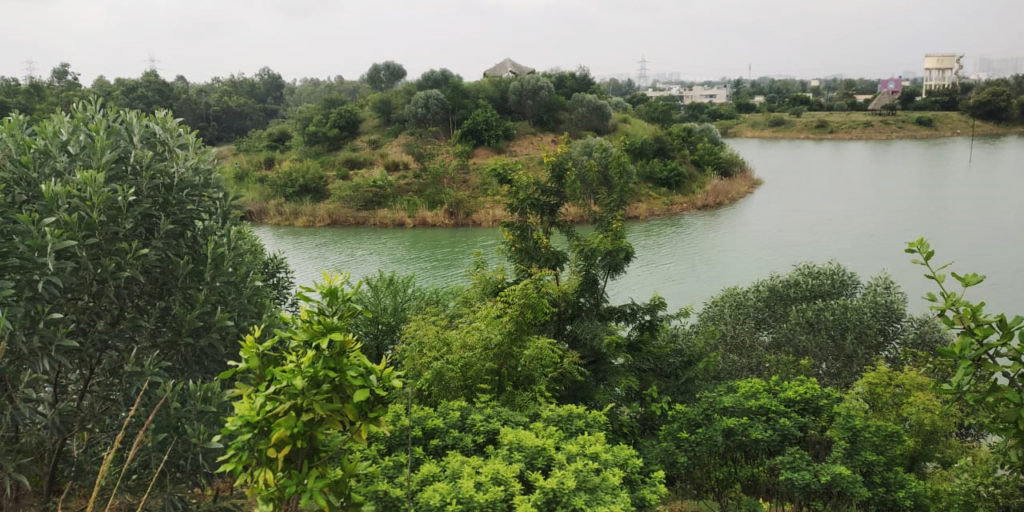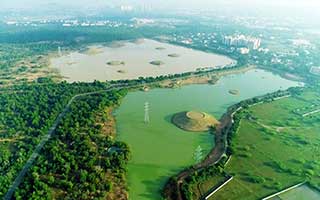Restoration of twin lake, Siruseri

The year 2015 was a time of reckoning for the coastal region of Tamil Nadu. On December 1st the region experienced the highest amount of rainfall in 100 years where over 400 people died, nearly 2 million people were displaced and losses amounting to 300 crores were incurred. There was serious need to take stock of situation and carry out immediate measures. TCS, Indian Institute technology of Madras and Pitchandikulam forest consultant got together to do the needful towards the positive rejuvenation of the environment.
The Siruseri water catchment area of which SIPCOT campus is located was identified as critical to the flooding of southern Chennai. A detailed hydrogeology survey of this area was carried out by IIT Madras. It came up with valuable recommendations to be implemented in the Siruseri water catchment to prevent future floods and to improve water management in the region.

This was to be executed in 2 phases; first the encroachment would be removed, and drainage channels cleared, secondly the storage capacity of the Siruseri twin lakes would be improved. IIT also recommended an eco-park and knowledge center in the area. This would help in sharing the experiences and lessons learned from the desilting and restoring the lake and channel systems. Such a center also enables demonstration of sustainable practices and would encourage an environmental planning conversation to happen between all the local stake holders.
PFC’s holistic vision included ecological and social factors. It puts together a replicable model of eco restoration that included in the age old system of 100’s of cascading lakes to west of Chennai. This would reduce the impact of flooding and also recharge the aquifers so that Chennai could have sufficient water in the summer months.
The plan included the transformation into a vibrant eco system of the degraded reserve forests above the Periya eri and Sitheri, which are infested with invasive exotic tree species. The forest area which is heavily eroded needs to be restored by the creation of water retention landscapes.
Awareness programs were conducted among the locals to gather their visions for Siruseri.
The conceptual plan of PFC also included provision for bunds, hills, platforms, islands and a site for the eco knowledge center.
The land development work of the Periya eri began on 17 December of 2018. In Sitheri the land formation work reached completion before the rains of 2019. More than 6,000 trees and shrubs of 60 indigenous species were planted during the last months of 2019. After over 35,000 machinery hours over 12,500 man hours and countless hours of design and creativity the twin lakes began to breathe again.
It feels positive that green blue energy is returning to an area that some 17 years ago was rural farm land but which was then transformed into an urban and industrial landscape. Hopefully with enlightened direction, SIPCOT and its surrounds can be a green model of how technological parks can be created.

Since the completion of the project in December 2019 Pitchandikulam has continued to maintain and develop the 100acre lake site. We now have a formal contract with SIPCOT to execute the maintenance and further plantations.



